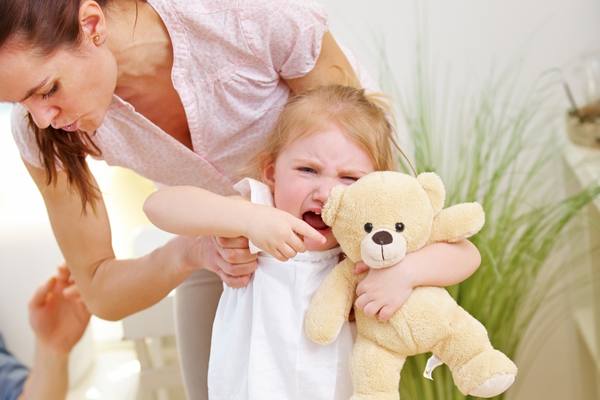Stranger Danger For Kids – The Complete Guide
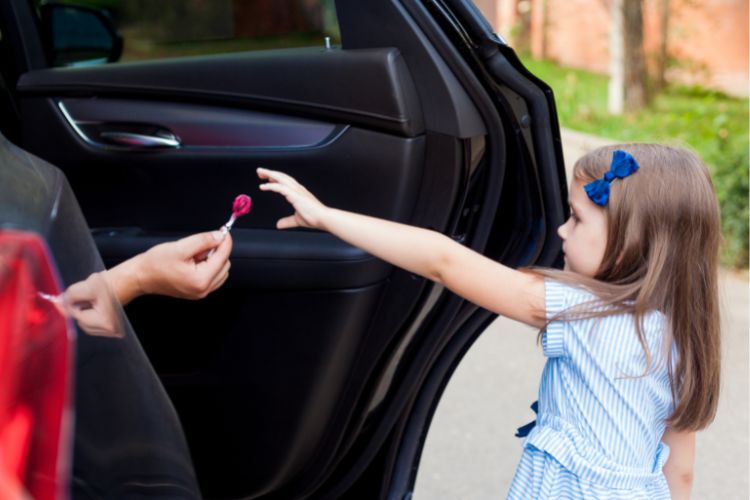
As parents, we want to ensure our kids are safe and prepared for the world around them as they grow. The safety of our children is always a top priority.
One of the most important lessons to teach our children is about “Stranger Danger”–how to recognize potentially dangerous situations and how to stay safe if they encounter one.
As a parent myself, I know this can be a difficult topic to discuss with your child. But it doesn’t have to be! In this blog post, I’ll provide some helpful tips and resources that can make talking about stranger danger more approachable and fun for both you and your kids.
We all want our children to trust their instincts and make smart decisions when they’re out in the world on their own. Stranger danger is an important concept that can help them do just that–by teaching them the basics of avoiding dangerous situations.
With a few simple steps, you can provide your child with the information and skills necessary for staying safe in any situation. So let’s get started!
What is “Stranger Danger”?
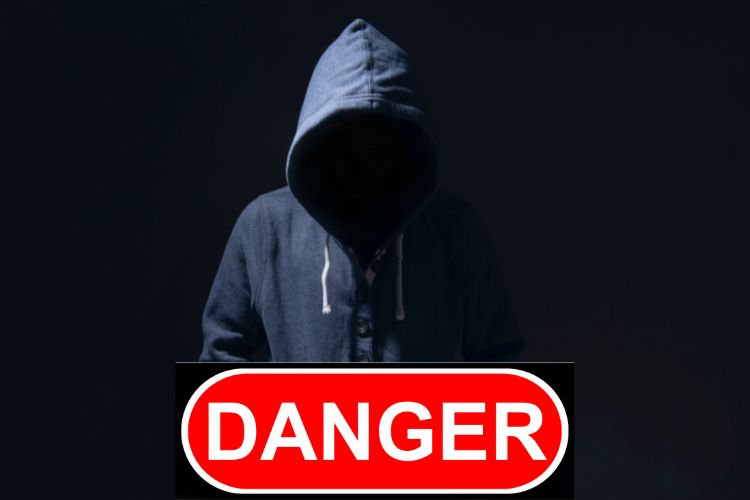
Stranger danger is a concept taught to children to help them recognize dangerous situations involving strangers and to help them respond safely.
It is taught to children so that they know how to protect themselves from potential harm, such as kidnapping or physical assault. The basic idea is for children to understand that strangers can be dangerous and that they should not talk to or go with unfamiliar people.
As a parent, you should talk to your kids about the following points:
Who Is A ‘Stranger’?
It is important to define the meaning of “Stranger” to your kids. Strangers are people we don‘t know or people that we are not familiar with.
It is important to remember that strangers can be both good and bad.
Good strangers may be helpful and friendly, offering help or advice during times of need. For example, a police officer.
Bad strangers, however, can be more dangerous and unpredictable. They may try to lure children away with candy or gifts, or they may threaten or intimidate people to get what they want.
It is important to be aware of your surroundings and to be aware of any stranger that may be approaching. If you are ever in a situation where you feel unsafe, you should always call for help.
Who Are Good/Safe Strangers?

Explain to your kids about good strangers. They are people you can trust and feel comfortable around.
People in uniform such as police officers and security guards are usually good strangers, so you can always approach them if you need help.
Grandparents or people with kids of their own are also good strangers. They are usually friendly and helpful. Remember, it’s important to always be aware of your surroundings and be careful who you talk to.
When Should You Start Explaining About “Stranger Danger”?
It is important to teach your children about strangers from a young age.
Explain to them that adults do not need children’s help to find things even if it may sound like a great opportunity.
In today’s world, strangers can offer tempting items such as Toys or Meals in addition to candy in order to lure children away. Be sure to remind your kids that they should not take any gifts from people they do not know.
It is also important to discuss the importance of listening to their instincts and being aware of their surroundings.
Explain that if something doesn’t feel right or safe, then it probably isn’t, and they should trust their gut feelings. They are allowed to say No to anyone.
Lastly, let your children know that if they ever feel unsafe or scared while out in public, they are always allowed to yell “stranger danger!” in order to attract attention from other adults who can help protect them.
Basic Guidelines For Stranger Danger

- Always stay with a trusted adult when out in public.
- If a stranger approaches you, stay away and yell for help.
- Never accept gifts, candy, or toys from a stranger.
- Never get into a stranger’s car or go inside their house.
- If the stranger persists or makes you feel uncomfortable, find a trusted adult and explain what happened.
- Never allow anyone to enter the house if home alone.
What To Do If You Lose Your Child In A Public Place?
If your child ever gets lost, it’s important to stay calm and take the right steps to ensure their safety.
Firstly, tell the nearest member of staff or enquirer desk as well as alert the security guards. It’s also a good idea to check with any nearby police stations.
It’s essential to equip your children with the knowledge of how to act should they ever get lost. Reassure them that if anything does happen, you’ll come and find them as soon as you can.
Remind them that if they’re ever in this situation, they should not run around trying to find you and stay where they are.
If they’re in the street, encourage them not to approach anyone but instead go straight into the nearest shop and ask for help.
If your children are old enough to have a mobile phone, make sure it’s always switched on. Make sure they know how to use it – that way, if anything does happen, they can call you straight away and stay put until you arrive.
This will help alleviate any feelings of fear or panic and allow you both to reunite safely and quickly. Above all else, try to remain composed and follow the steps outlined above in order to locate your child quickly and efficiently.
How Can Your Child Respond If A Stranger Approaches Them?
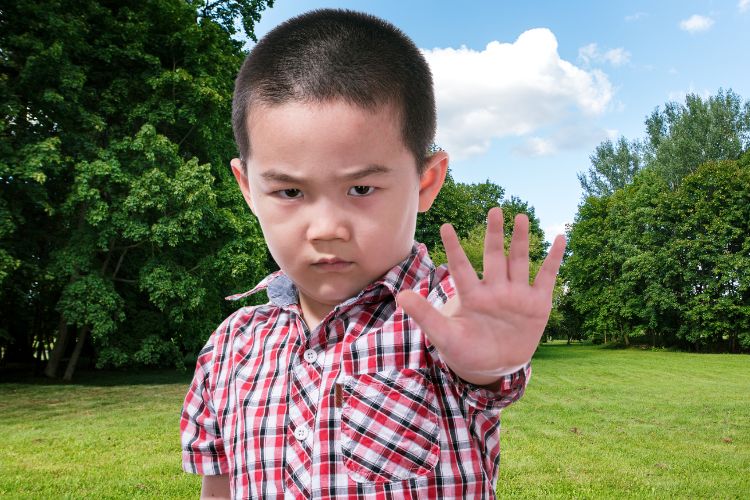
If your kids are ever in a situation where they need help and there is no one around to assist them, it’s important for them to use their instincts.
To find someone to approach, have them look for people with uniforms, such as police officers, security guards, or store employees. These people are usually more likely to be willing to help.
If there are no uniformed people in the vicinity, suggest that they look for women, grandparents, or those with children of their own.
Remind them that if they don’t feel comfortable approaching a particular person, they should move on and find someone else who could potentially lend a helping hand.
Teach Them How To Scream Loudly

When in danger, screaming loudly can help to draw attention to the situation and alert people around you that you need help.
This can be a powerful tool for getting help quickly and potentially avoiding harm.
Additionally, it is important to remember to scream words such as “stranger danger” or “help” which can make it easier for people nearby to understand what is going on.
What If Your Child Is Home Alone?
If you are leaving your children home alone, it is important to make sure they know what to do if anyone knocks or rings the bell.
The first thing for them to do is to check who it is. If they are not sure, they should not open the door and instead call you or another parent to check.
It is also important to tell them what to do if someone calls on the phone. They can answer the phone, but they shouldn’t give away any information about their situation or whereabouts. It might be a good idea to tell them to listen without saying anything and hang up if they feel uncomfortable.
The most important thing is that you talk to your kids before you leave them alone and make sure they feel comfortable with the situation.
Give them clear instructions on what they should do in case of an emergency and tell them that you will always be there for them when they need help.
Wrapping It Up
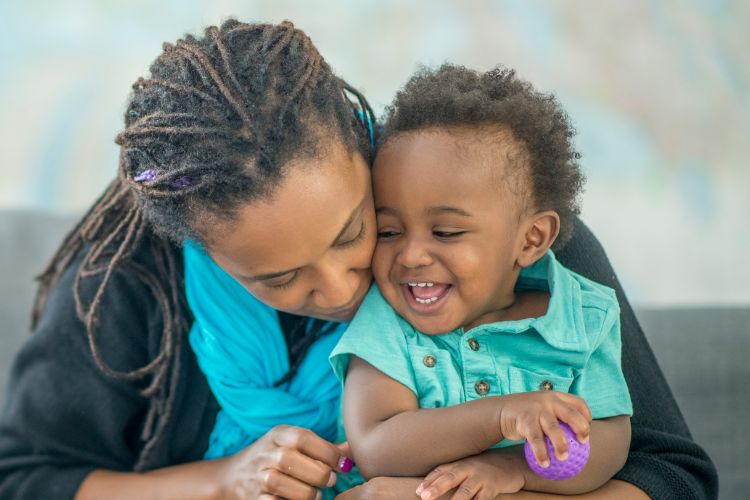
Remembering to stay safe is an important lesson for all children. Teaching them about stranger danger can be difficult, but it’s essential to ensure their safety.
Role-playing different scenarios is a great way to teach kids how to respond in various situations and keep themselves out of harm’s way.
It’s also important to set up a family code word so that your children know exactly who they can trust if they ever need help.
The most important takeaway from this post is that it’s absolutely essential for parents to educate their kids about stranger danger and provide them with the tools needed to stay safe.
No matter what age your child is, it’s never too early or late to start talking about stranger danger and arming them with the necessary knowledge.
With these tips and strategies, we hope you feel more confident in teaching your kids the important message of “stranger danger”. Keeping your kids safe is paramount, so please make sure to share these tips with others!

